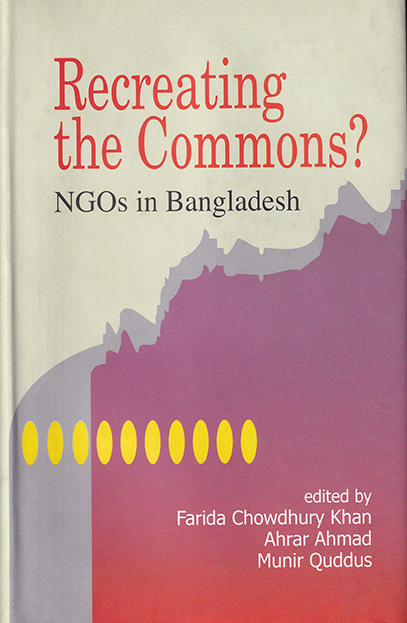
- Shop
- Recreating the Commons? NGO's in Bangladesh
Recreating the Commons? NGO's in Bangladesh
| Language: English |
Tags :
Book Info
Non-governmental Organizations (NGOs) are an integral aspect of society in Bangladesh. They provide a variety of services to people, generate employment, mobilize public opinion, and influence governmental policy. They remain as an important liaison with the donor community and are a substantial cultural, political and economic presence in the country. NGOs are involved in many important sectors of the economy such as education, health, and finance. They are relevant politically, given that many of them are active in addressing important issues relating to gender, poverty, corruption and the activities of civil society. There is an additional dimension to the efforts made by the NGO’s and the initiatives taken by them in an attempt to raise consciousness and to empower people, thereby altering how citizens in Bangladesh view their rights and obligation in society. Although various studies of specific organizations exist, few scholars have examined the overall politics, economics, and culture of NGOs in Bangladesh. This study constitutes a scholarly approach to the subject. It raises critical questions, examines relevant issues from within specific broader levels of analysis, and explores the processes through which NGOs have become an indispensable part of the socio-political landscape of Bangladesh.

Farida Chowdhury Khan
Farida Chowdhury Khan is Professor of Economics at the University of Wisconsin at Parkside, USA. She has earned her PhD in Economics from the University of Maryland, USA. She has worked as a consultant for the World Bank. Her current research interests are on women's issues in Bangladesh, including the effects of micro-finance on women and their lives.

Ahrar Ahmad
Rahim Quazi is Professor of Economics and Director of the Center for International Business Education, Prairie View A&M University, Texas.

Munir Quddus
Munir Quddus received his Ph.D in Economics from Vanderbilt University, USA. He is currently Dean of the College of Business at Prairie View A&M University and Professor of Economics. His research interests are: leadership and entrepreneurship, the history of economic thought, and economic development. Dr. Quddus is author of Entrepreneurs and Economic Development: The Remarkable Story of Garment Exports from Bangladesh (Dhaka: UPL, 2000).


